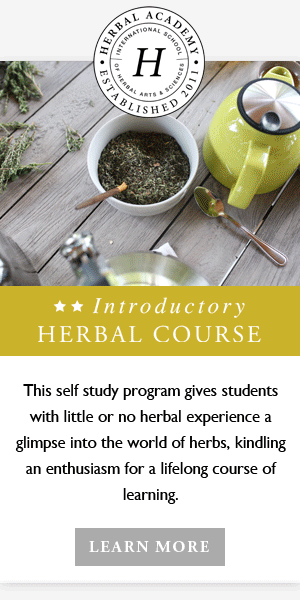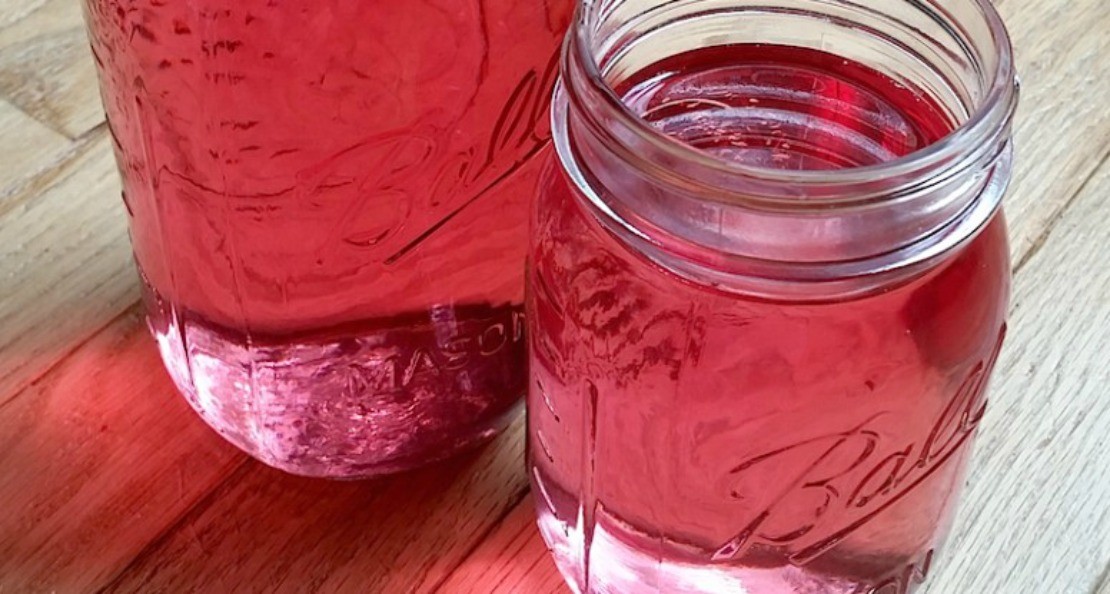
How to Make and Use Rose Water
There are many well-known herbal flowers I’ve had the privilege of using over the years…lavender, chamomile, calendula…all very popular in any herbal arsenal. But one flower that I’ve often overlooked and kept in the “for decoration only” category, has recently caught my attention for its wonderful herbal properties. The beautiful, fragrant rose.
For years I loved roses because they brightened up my home décor and brought a fresh scent to a room. But over the last few months I’ve been reading up on how useful this flower can be in any herbal apothecary. From using rose water in skin care to tea to baked goods, this flower has any array of uses for health and home. Let’s explore!
What to use
Before we dig in to all of the great ways to use roses, I just want to touch on what you want to look for when you get your roses.
You ALWAYS want to use roses that have not been sprayed with any chemicals, pesticides, etc. Whatever was put on the flower or into the soil it’s growing in, will end up in whatever you make with the petals…and you don’t want to be eating that or putting in on your skin. So buying a bouquet from your local super market isn’t going to work. The best options for fresh petals are to grow your own roses or get them from someone who does, without the chemicals. You can also buy dried organic roses from a reputable herb company like Bulk Herb Store.
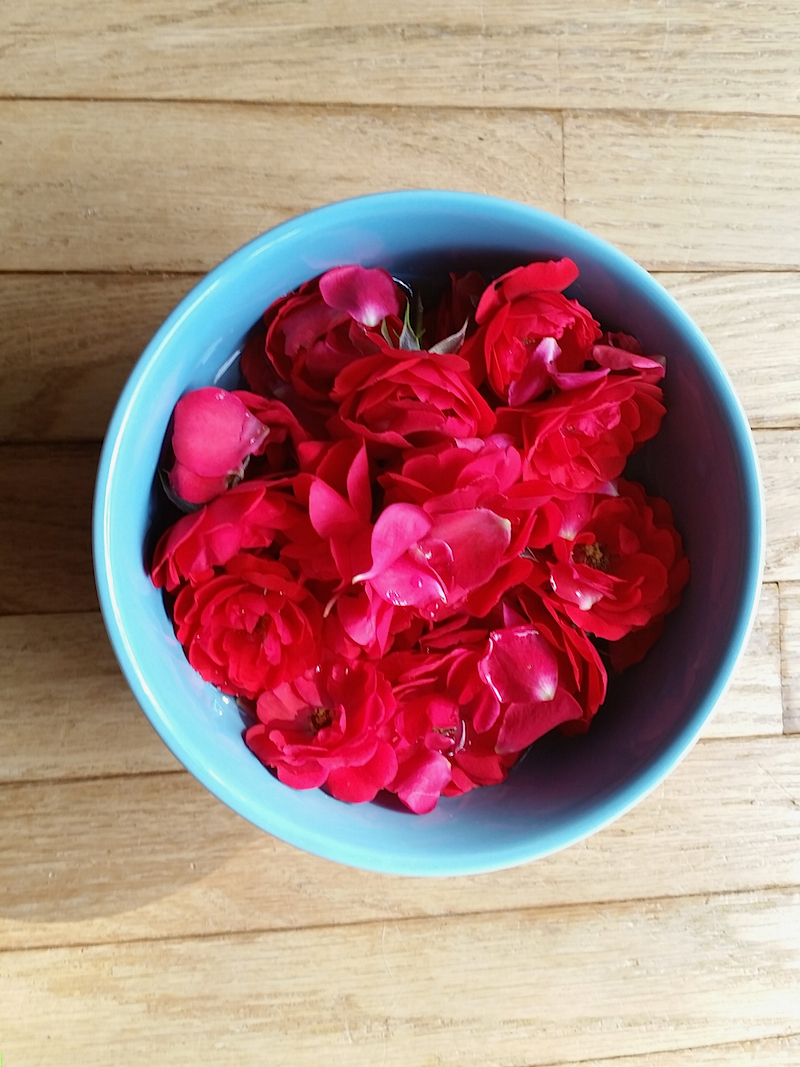
Benefits of Rose
So what can you do with this sweet smelling flower?
Historically, roses were used for baths and perfumes because of their wonderful aromatic qualities. As time has gone on, the medicinal uses for roses have grown.
Some other uses include:
- menstrual issues
- skin/face toner
- acne
- inflammation and pain relief
- teas (they contain healthy flavonoids and are a good source of vitamin C)
- relaxation and anxiety relief
- facial skin care
- perfume
- baked goods
- salads
Rose Water and How to Make Your Own
There are many methods for using rose including teas, herbal baths, and infused oils. But one of my favorite ways to make use of rose is with rose water. Rose water contains all of the essence of the rose petals – the chemical constituents that provide all the benefits for the uses listed above. Not only does it contain all of the medicinal benefits of roses, the water also takes on the wonderful scent of the flower as well. Rose water can be conveniently used as a facial toner, acne, treatment, or refreshing body spray. You can also drink rose water when added to your favorite tea and even add it to elegant baked goods.
Rose water can be costly to purchase, so making your own is an inexpensive and easy way to make sure you have some on hand. Through some research and reading, I found a few different methods for making rose water:
- Steam distilled method- this a more traditional way of making rosewater that involves distilling water in a pot with rose petals, allowing the rose to infuse into the water. This method is more involved and time consuming, but would yield a great product in the end.
- Cooking method – this is done by adding the rose petals and water to a double boiler, and slowing simmering until the color has left the petals. It’s a quick method that is less labor intensive, but the end product may not be as strong as if steam distilled.
- Hot water infusion – and even quicker method, this involves placing the rose petals in a jar, pouring boiling water over them, and allowing it to sit for several hours.
When making rosewater, no matter the method, it is best to use fresh rose petals, not dried. And as mentioned above, you want to make sure they are from a source that does not spray or add chemicals.
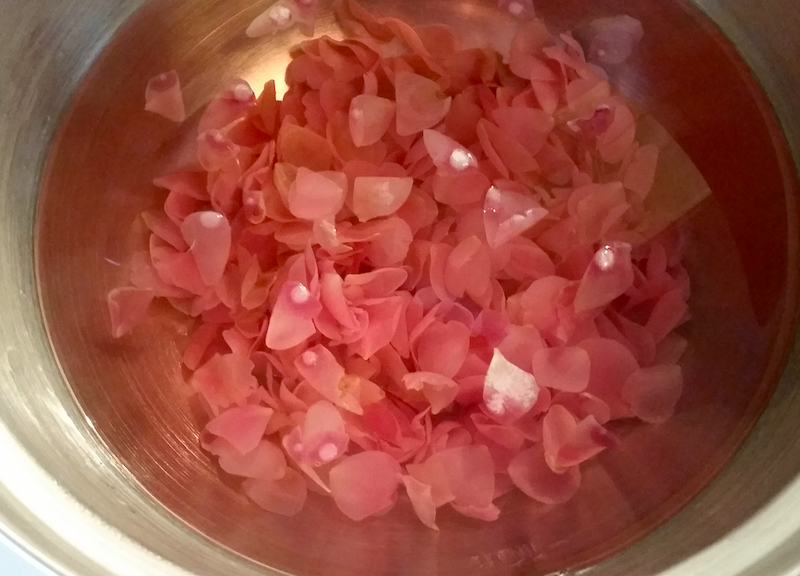
For my rosewater, I chose to utilize the cooking method. As a busy mom of five, I knew this would be a less complicated, involved way of getting my rosewater, but still have a quality product. So here’s how you make it!
Ingredients
Fresh rose petals Directions
So now that you know why roses are so great and how to make your own water, you’re probably wondering what you can do with it. There truly are so many options on how to use your rose water, but I will share a few of my favorites.
Facial toner – simply put a little rose water on a cotton ball and apply to your face after washing. Roses have astringent properties that make the rose water perfect for this
Body spray – add rosewater, witch hazel, and your favorite skin nourishing essential oil to a small spritzer bottle. Use after bathing or showering to brighten and refresh your skin
Facial mask/acne spot treatment – follow this recipe for a face mask that can also be applied as a spot treatment for acne:
Ingredients
½ tablespoon green clay OR bentonite clay Directions
Mix all the ingredients in a glass bowl and apply to your face. This is enough for one facial mask treatment or several acne spot treatments Herbal tea – because of its calming properties, and ability to help with menstrual issues, rose water is especially helpful when combined with other herbs that address those same areas:
calming/relaxation tea: chamomile, lemon balm, rose water
PMS/menstrual tea: nettle, red raspberry leaf, oat straw, peppermint
immunity/health: rosehips, elder flower/elderberry, echinacea
What are your favorite ways to use roses? Have you made other floral waters and what have you done with them?
REFERENCES
Gladstar, Rosemary. (2014). Herbs for Natural Beauty. North Adams, MA: Storey Publishing
Gladstar, Rosemary. (2008). Herbal Recipes for Vibrant Health. North Adams, MA: Storey Publishing
Herbal Academy of New England, Herbarium. Rose Monograph. Retrieved September 2015 from http://herbarium.herbalacademyofne.com/monographs/#ID=1027
Tierra, Michael. (1998.) The Way of Herbs. New York, NY: Pocket Books.
Weed, Susun. (2007). Wild As a Rose. Mystic Pop Magazine. Retrieved September 2015 from http://www.susunweed.com/Article_Wild-As-A-Rose.htm
Katie Sandy is a wife and mom to five amazing kids. She is a certified aromatherapist who loves essential oils, as well as herbs, and finding ways to combine them both as part of a more natural lifestyle for her family. Her passion is to help other families by sharing aromatherapy and herbal information, usage tips, and recipes. You can find all this and more over at Genesis Essentials.
Rose Water Recipe
Distilled or filtered water
*the rose to water ratio is one part rose petals to two parts water*
Double boiler (I make my own with a metal bowl and pot)
Fine mesh strainer/cheese cloth
Mason jar for storing
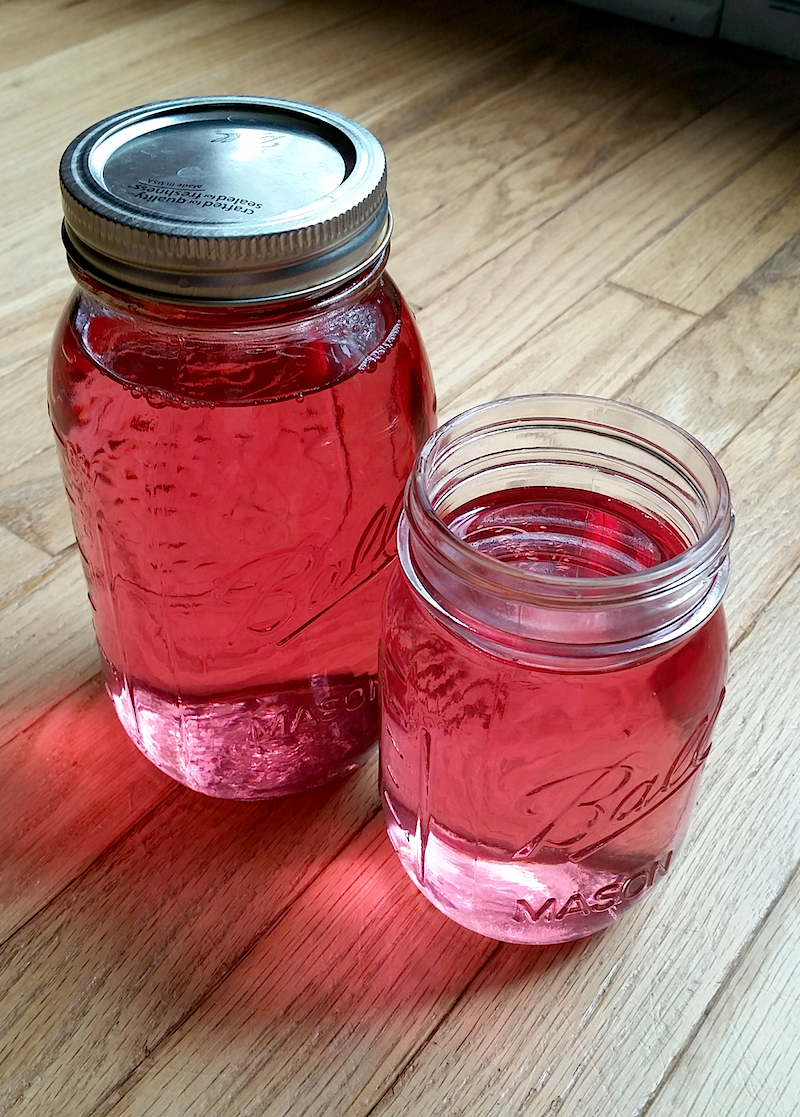
How to Use Rose Water
Face Mask
3 teaspoons rose water
1-2 drops of lavender essential oil

